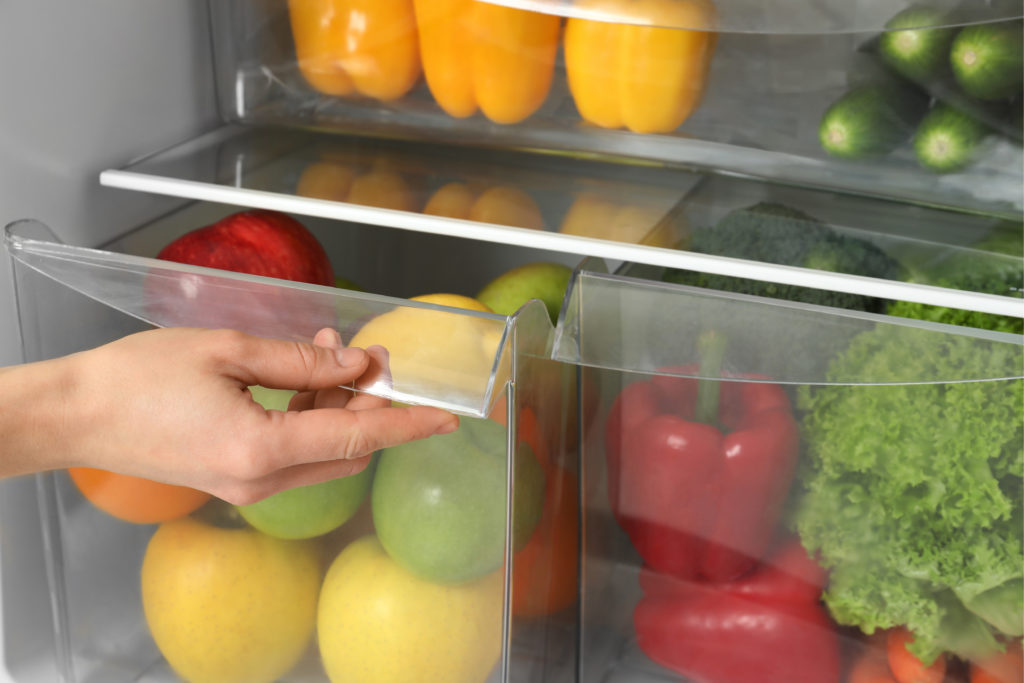Ever wondered why your leafy greens wilt so quickly while your apples stay fresh? The secret lies in how you store them. Fruits and vegetables have unique storage needs, which is why it’s essential to know how to store them correctly. By understanding the right storage methods, you can make your produce last longer and keep everything fresh for as long as possible.
Keep the Right Thing in the Right Place
Your fridge’s crisper drawers are essential for maintaining the freshness of your leafy veggies. Leafy greens thrive in high-humidity environments. The crisper drawers are specifically designed to maintain moisture levels. For greens, use the high-humidity setting, which prevents them from drying out too quickly.
Fun Fact: Wrapping greens in paper towels absorbs excess moisture, preventing them from getting slimy and soggy.
Don’t Mix Fruits and Vegetables
Did you know that some fruits like apples and bananas release ethylene gas, which accelerates the ripening of nearby vegetables? What happens if you mix them? Ethylene-sensitive veggies like spinach or lettuce wilt faster when exposed to this gas, leading to premature spoilage. The solution lies in storing fruits and vegetables in separate compartments or drawers to prolong their freshness.
Care for Your Herbs Like Flowers
Herbs can be as delicate as flowers, and they deserve a bit of extra care. Trim the stems of herbs like cilantro, parsley, and basil, place them in a jar of water (the OG flower bouquet trick), and cover loosely with a plastic bag before putting them in the fridge.

Let Your Fruits Breathe!
Plastic bags may seem convenient, but they trap moisture, causing premature spoilage of fruits and veggies. Even if they come in perforated plastic bags, it’s best to take them out.
Pro Tip: Switch to breathable containers or just leave them loose to avoid the buildup of excess moisture.
What to Do with Root Vegetables?
Certain root vegetables can be stored for extended periods if treated right. Refrigerating sweet potatoes can make their centers hard, affecting their texture when cooked. Instead, keep them in a cool, dark place. Other root vegetables like carrots, beets, and ginger can be stored anywhere in the fridge without much fuss.
Use Vinegar Baths for Berries
To slow down mold growth and bacteria, a quick vinegar bath works wonders. Mix 1 part vinegar with 3 parts water, then soak your berries for about a minute. Rinse thoroughly and allow them to dry completely before storing.
Why this works: The vinegar kills bacteria and mold spores that cause berries to spoil, extending their shelf life significantly.
With these simple hacks, you can enjoy fresher fruits and vegetables for longer periods. From separating your produce to giving your berries a vinegar bath, these tips help reduce food waste, save money, and ensure your meals are always bursting with freshness. So the next time you stock your fridge, remember these easy tricks to keep your produce at its best!




